
2 minute read
Exploring Essen’s OUTDOOR CHARM
Founder of Access the Dales, Cabinet Office ambassador for accessibility to the countryside and wheelchair user Debbie North spends a lot of time in the great outdoors. So how would she fare in the post-industrial German city of Essen?
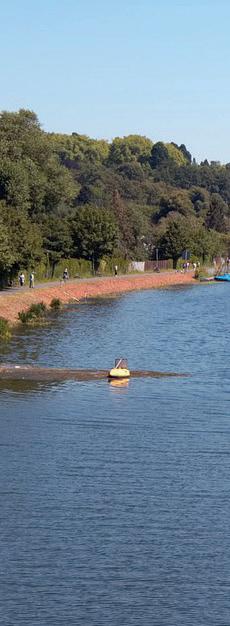
Advertisement
As a wheelchair user, I am always nervous about going to new places and travelling abroad as I never really know what the accessibility is going to be like. Will my needs be met? Will I be able to get around safely on wheels?
I love to travel and see new places, but I must do a lot of research ahead of my visit for me to go independently. Top of my worry list is the transport, shortly followed by the accommodation. And finding this information is not always straightforward. Alongside this, being in a city is not my idea of pleasure. I want green spaces and nature. So when it was suggested I take a city break in Essen, in the Ruhr region of Germany, I was somewhat sceptical… How can this city, rich in industrial heritage, promote itself as one of the greenest cities in Germany? And why would I want to spend time there?
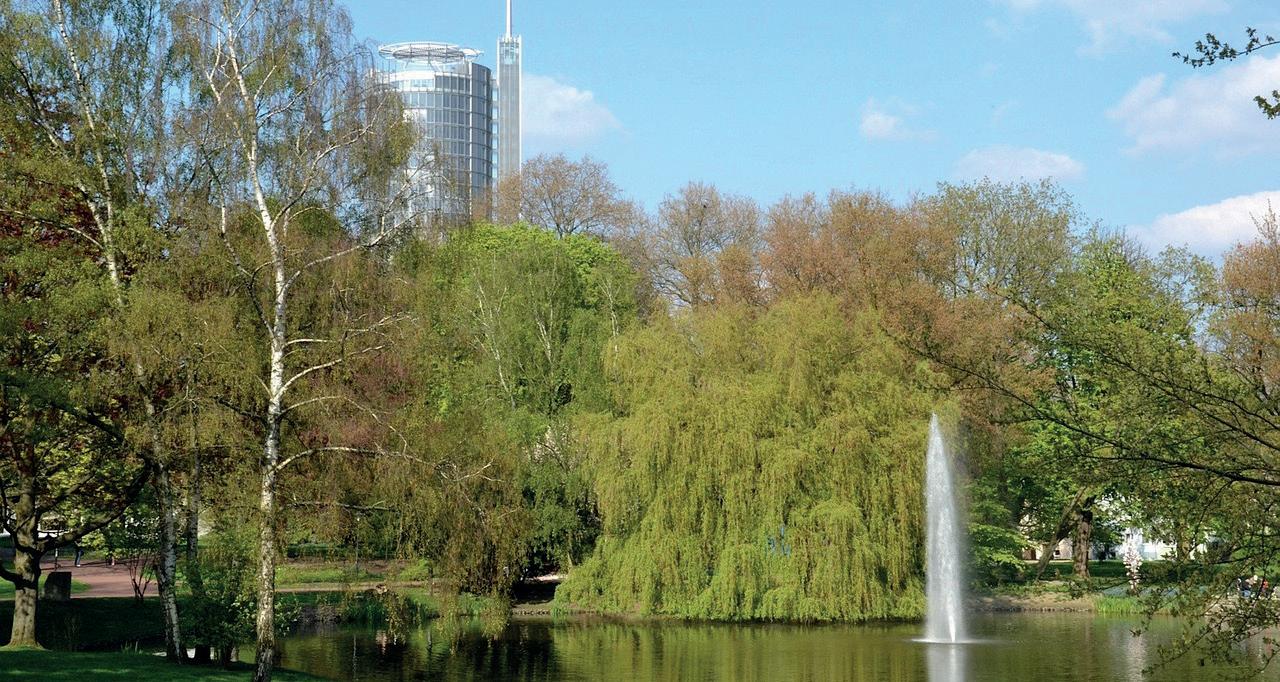
After staying for a few days, I’m happy to say my preconceptions were unfounded. The flight to Düsseldorf airport from Manchester was smooth, and I was assisted on and off the aeroplane, to luggage collection and through to where a taxi took me to my hotel. The hotel was delightful. The Atlantic Congress, slightly out of the city centre, was wheelchair friendly, with lifts to every floor and easy access to all public areas in the hotel. My accessible room was a suite, with a wonderfully large bathroom. But the best bit of the hotel? Its location, next to the Grugapark. Known as the ‘Green Lung’ of Essen, I spent a pleasant morning rambling through its botanical gardens and open-air sculpture exhibition. With easy wheelchair access to all the park, including a lake, meadows and plenty of wildlife, my first day was a success.
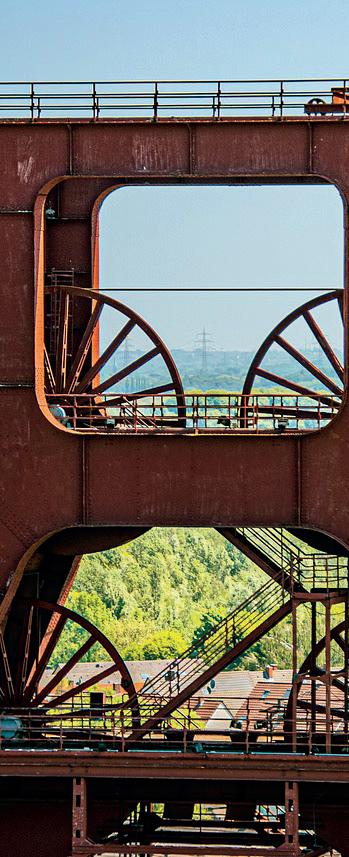
The next day, I took the Stadtbahn (metro) to the city centre. Knowing the London Underground, I was nervous. But the Stadtbahn was so easy to navigate and there were plenty of English-speaking staff to help me on and off the train that I ended up using it several times. At some stations, I needed a ramp between the station platform and train, but at others it was level.
I headed for the Zollverein Coal Mine Industrial Complex, a UNESCO World Heritage Site. After the mine’s closure in 1986, it was converted into an educational and recreational centre that promotes sustainable development in the city. More importantly for me however, was being able to explore a section of the 260 kilometres of cycle paths that were built on the former railway lines where coal and steel were transported. The solid, level tracks around the site were perfect for the wheelchair and it was a great way to explore the green spaces that have been created on the site of the former colliery.
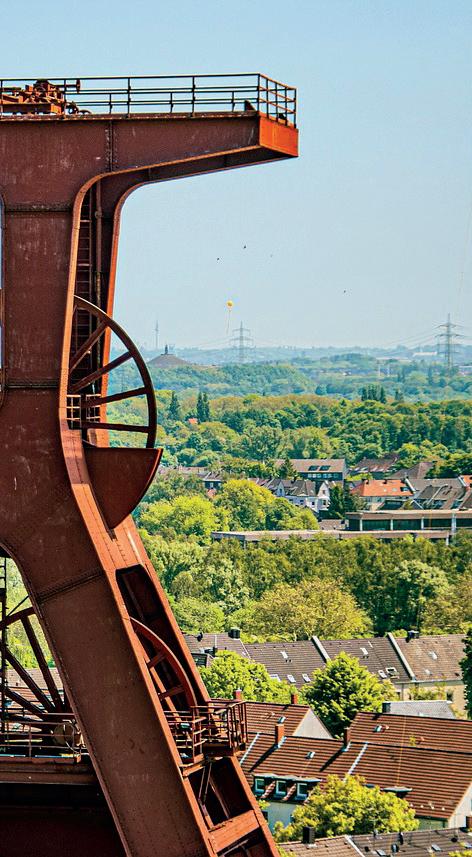
My final day in Essen was spent south of the city, along the shore of Lake Baldeney. An artificial reservoir built on the Ruhr 90 years ago, the cycle trail running alongside it was easy to explore in my wheelchair.
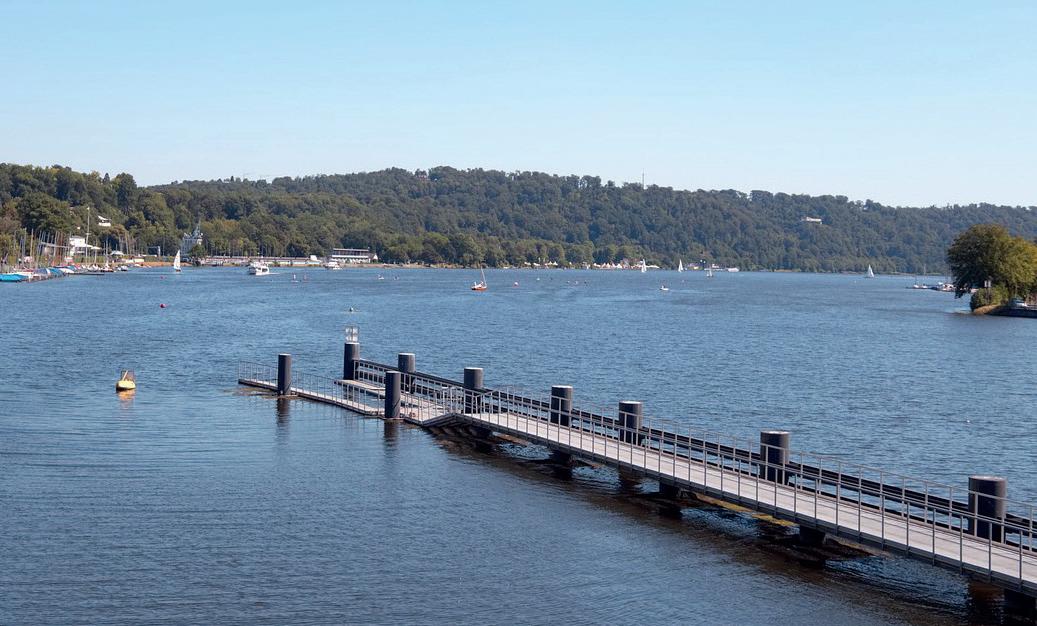
Essen opened my eyes to the possibilities of sustainable development, and from lush green spaces to extensive cycling paths and picturesque hiking trails, it’s a surprising outdoor enthusiast’s paradise.
For wheelchair users visiting Essen, plan your time as there is so much to do and see in this flat and easy to get around city. There are accessible taxis and don’t forget to ask the hotel staff for help – I found they had a wealth of knowledge and experience to share.
To find out more about Debbie’s charity, visit access-the-dales.com










